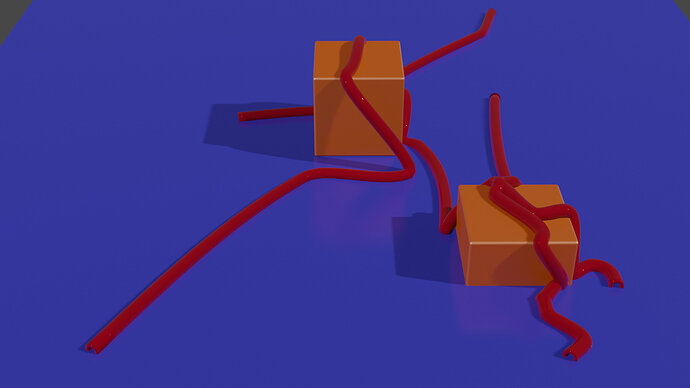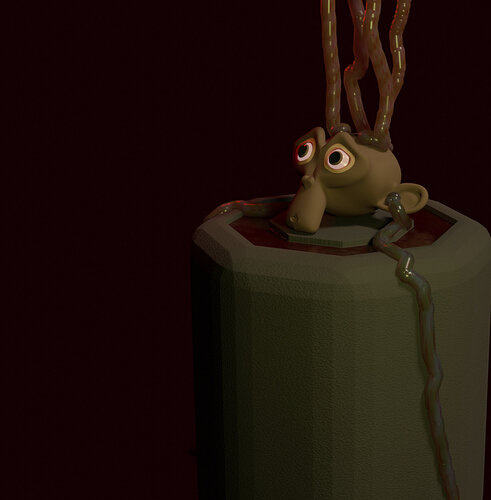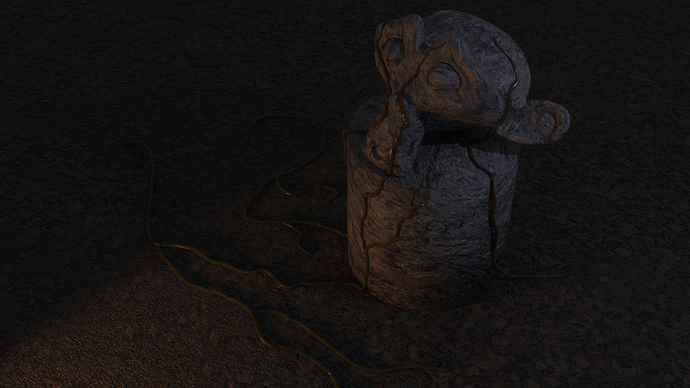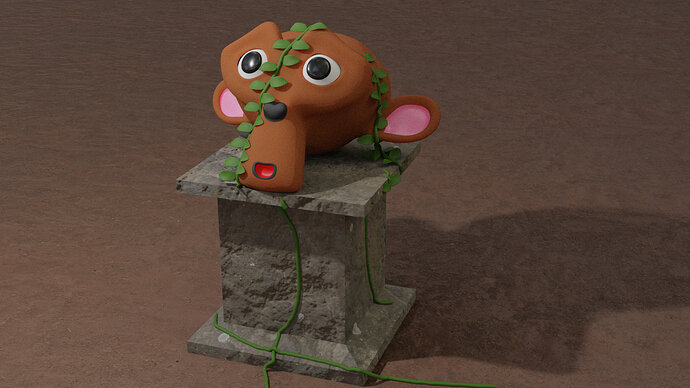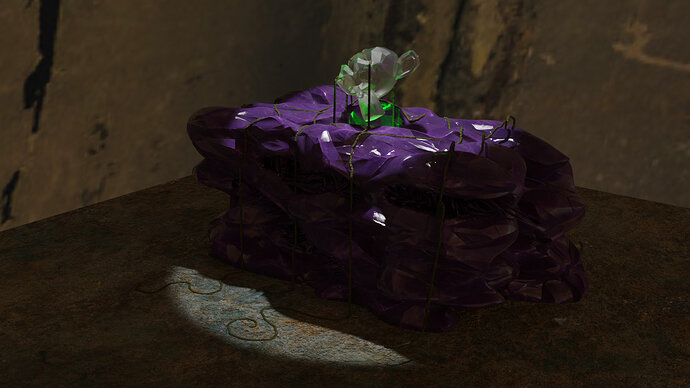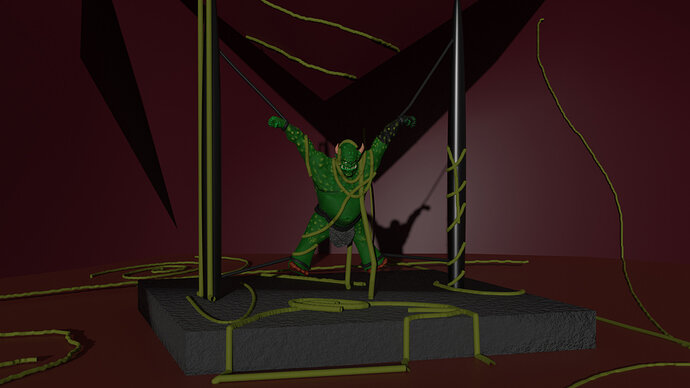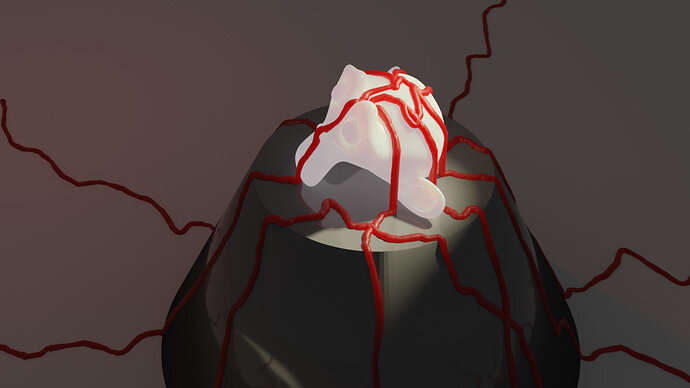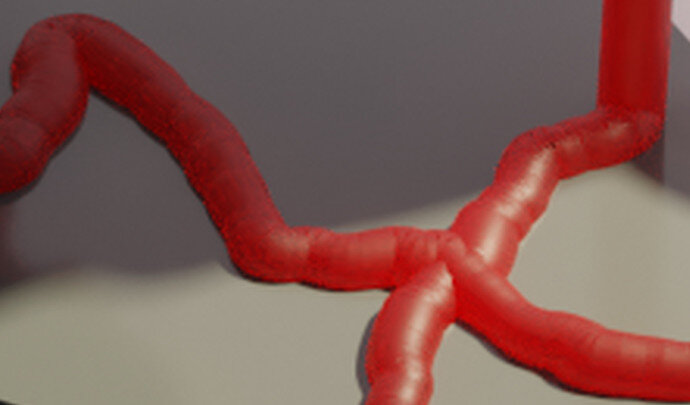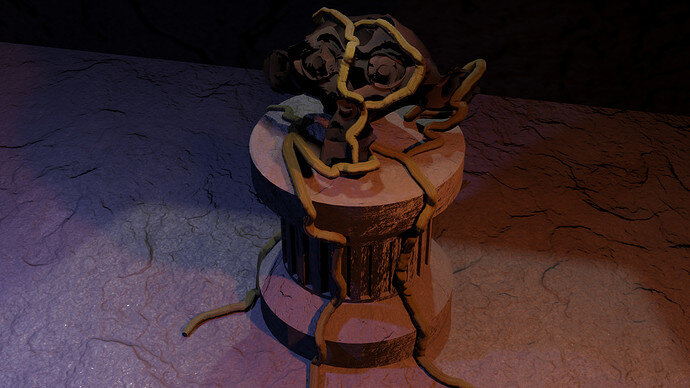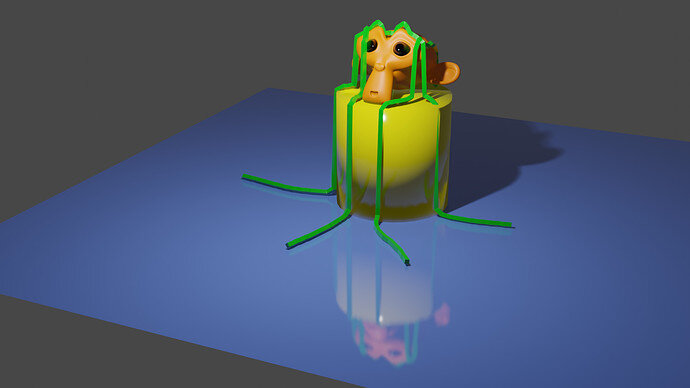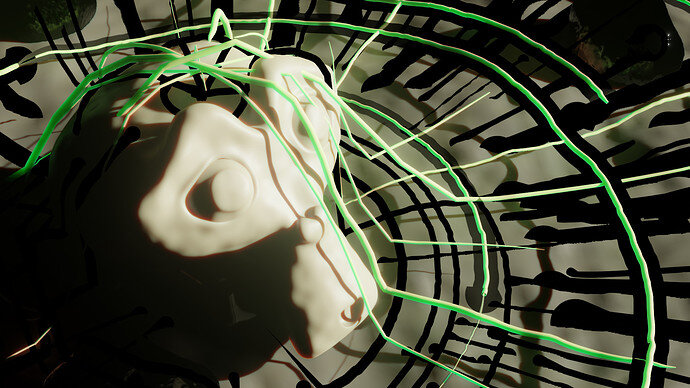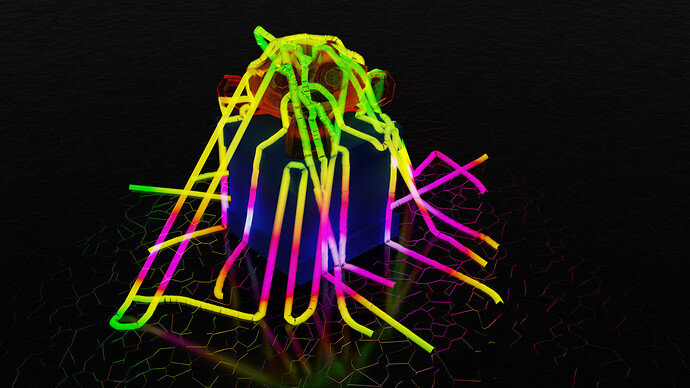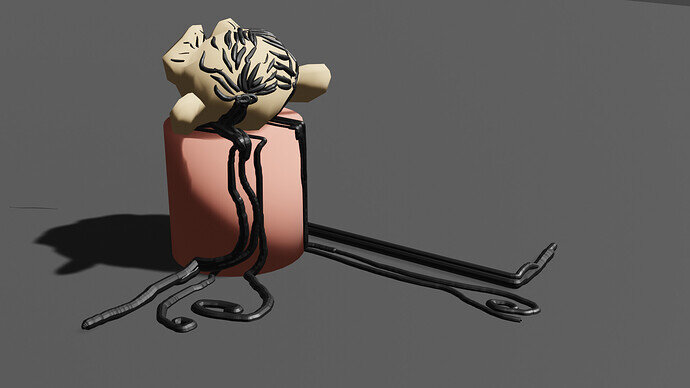I don’t use GPencil (I did try to use it but really don’t like it ), So i use Bezier Curve directly.
I think it much easier.
“Indiana Jones” sequel?
But youa are right, the vines look metalic.
Maybe express that more?
Lol Grant’s course there too? Good mixing though, fun stuff.
I covered Suzanne in a creepy red vine-like web. The vines were drawn with a stylus (nice toy!) using the Draw Noise pen - quite useful if you suck at drawing a straight line 
Both the vines and Suzanne have sub-surface scattering applied to them. To make it show more, I used a spot that illuminates just part of Suzanne and the vines. All that is on a very shiny altar.
Rendering this is gruesome: even though I set Cycles to 2048 cycles and activated denoising, there is quite a lot of noise left in parts of the render. So in a “real” scenario this might take ~4000 cycles…
It took my CPU (Ryzen 1700x, 8 core / 16 threads) a bit over 20 minutes. My GPU (Radeon Vega 64) took 9 minutes. Teaming both up brought that down to ~6:45. So I’ll remember to let both render together when doing lots of reflections / sss.
I’m a bit confused about your quest on noise. 4000 samples, denoiser on …
I really do think there is something else happing in your scene.
Can you mark the spot on the image where you see this effect/distortion happening?
Some students worked hard on the topic “Kitchen Robots”. Can you have a peek and vote? Thank you so much.
Here’s an ~800% scale of part of the image where it shows. I hope it does not loose too much during conversion.
Grease pencil generates a lot of vertices. And all those vertices introduce again a lot of data to give the line a body to Render.
Basically, you need to clean up the grease pencil data vertices with more fluid line motion. Less noise, which can not be solved by adding more samples.
Cycles samples, say something about how many light rays are used (calculated) to build up the image. Less sample the noisier the image becomes because Blender Cycles has not enough data to build the images. White pixels, pixel noise. The more samples you use, the better the noise is recalculated.
But it comes with a cost. It is time-consuming! Heavy CGP and GPU maths.
The latest trend is using a denoiser, which becomes currently very smart (because of AI used). It’s used in gaming hardware with ray-trace capabilities. With a few samples, you can get a realistic render. Good enough for fast-paced games.
But Blender has something new and that is Eevee. It doesn’t use rays to calculate but is based on rasterization. This is how most game engines work. With Eevee, you have a better path for game development.
dreadlocks
 Good idea though.
Good idea though.


